EPISODE HIGHLIGHTS
Can you tell us about your daughter Josie and about starting the FOXG1 Foundation?
Josie is 11 years old and she is the cutest little girl. She's amazing in that she has FOXG1 syndrome and can't do much, and yet she's the happiest, most joyful little girl and I feel blessed to have her in my world. My mission is to give Josie and every child with FOXG1 syndrome the healthy life they deserve. On the diagnostic journey, I was blogging and that's how I met Nasha Fitter after her daughter was diagnosed. We teamed up with other FOXG1 parents across the world and formed the FOXG1 Research Foundation in 2017.
What were your top highlights and takeaways from the FOXG1 Syndrome Science Symposium & Parents Conference?
We hosted two conferences in one and the first was a science symposium where scientists from all over the world met privately in Florida to present their data. I couldn't believe how much science was underway. Seeing how far we've come on the science-front was really incredible, as was the promising data that was uncovered. It was clear that this isn't a job for the scientists involved-- they are invested in helping all children with FOXG1 to live a life without suffering. The parent's conference was a blend of clinicians, scientists and FOXG1 parents that all came together to learn from each other-- to connect, learn and inspire. There was a lot of information and a lot of inspiration.
What advice do you have for patient advocacy leaders in motivating their caregiver and patient population to better understand their disease, get involved and participate in fundraising?
There's a lot we want to say to parents to communicate the work that's being done to improve their children's lives, but it's a challenge because people see things quickly and go on about their day. My best advice is to let the work speak for you. For anyone starting or running a patient organization, it is hard to reach your whole community and convince your whole community to get involved, but the more work you do, the more parents will see the work that's being done.
What advice do you have for advocacy leaders who want to hold a conference?
If you're thinking about doing it, absolutely do it. We were able to get sponsors which allowed us to do a travel scholarship and that helped parents to come, removing the burden of cost. When we were deciding on a venue, we looked at where the majority of the families lived and chose a place that doubled as a vacation. I recommend choosing a vacation-type location that adds an extra level of enjoyment.
LINKS & RESOURCES MENTIONED
FOXG1 Research Foundation YouTube
TUNE INTO THE ONCE UPON A GENE PODCAST
CONNECT WITH EFFIE PARKS

